
..........................................................................................................................................................................................................
rainbows in the mud. inside the intoxicating world of cyclocross. paul maunder. bloomsbury publishing. 276pp £14.99

now that the small matter of the world road race championships are over and done with for another year, we can move on to more important matters. one-day classics and grand tours are one thing (well, two things, if we're being really picky), but the pinnacle of everyone's velocipedinal year is surely the excitement that is piqued when the hashtag #crossiscoming begins to pepper your twitter or instagram feeds. those of you who are wont to disagree with this empirical truth are either simply wrong or you've not yet realised just how wrong you are.
if i might offer yesterday's world championship road race as evidence in the case for the prosecution, the on-screen clock at the finish showed substantially over six hours. and despite the fact that peter sagan was demonstrably anonymous for more than six of those hours, the czech rider nipped out from the bunch at precisely the right moment to nab a third consecutive victory by a matter of millimetres. exciting? yes, indeed it was, but we'd to wait quite a long time not only for those few moments of excitement (not exactly ameliorated by the loss of bike cameras from 3km to go) but to learn who'd wear those rainbow bands until this time next year.
cyclocross isn't at all like that. well, apart from the excitement factor. at the serious end of cyclocross racing, a senior event lasts an hour plus one lap, a far more manageable chunk of cycling, running, bunnyhopping and mud. aside from those factors, many a cyclocross parcours can be viewed in its entirety from a single spot. add all those features and advantages together and the question is not why the sport is so popular, but more why it isn't more popular?
author paul maunder wasn't kidding when he subtitled his excellent 'rainbows in the mud' as 'inside the intoxicating world of cyclocross', for inside the sport he truly was/is. to watch riders such as sven nys, wout van aert or even american jeremy powers switch bikes in the pits made this year's world time trial extravaganza seem something of a parody. there are bike handling skills on show throughout the average cyclocross race that possibly only peter sagan is capable of equalling.
maunder gives a firsthand enthusiastic insight into the two distinctly different flavours of 'cross to be experienced; in its belgian/dutch heartlands as well as the more participatory version on show across the pond. but before investigating either, in a chapter aptly entitled cross is coming, he accurately places the sport in its autumnal setting.
"In the the first days of September, the weather, not suprisingly, isn't very different from the last days of August. [...] The air is sharper, cleaner. The summer colours are in abeyance. There is more knitwear to be seen on the streets of the capital. I like knitwear."
the history of cyclocross is mired in an inaccurate past "Cyclocross ... began life as a form of steeplechase. There is no definitive version of how cyclocross started..." there is, however, no disputing that cyclocross as a sport, albeit a disorganised one, began in advance of henri legrange's tour de france. in fact, legend has it that 'cross gained much of its ascendancy as a means of road riders keeping themselves fit during the off-season, a situation that is rarely the case nowadays.
though i have been known to post on twitter the rather arbitrary number of days until the next edition of paris-roubaix (194, since you asked) and fervently look forward to dwar doors vlaanderen and liege-bastogne-liege, maunder is keen to point out that cyclocrossers are "...much more connected to their courses than roadies, so when a course is no longer used it becomes 'lost' [...] But they can also have a personality ... even a sense of humour." in all my years of being obsessed with cycling, i have never heard any rider describe paris-roubaix as having a sense of humour. surely that factor alone should be convincing enough for the cyclocross naysayers?
but prior to heading off into the depths of central europe or the more far flung 'cross regions of north america, the author is keen to place the sport in some sort of british context, however, parochial that might seem to the avid 'cross fan "The edgelands are the spiritual home of cyclocross. It is not a wilderness sport. [...] There is very little wilderness left in England." though mr maunder does not specifically make the point at this juncture, he has surreptitiously managed to point out the difference between cyclocross as was and the more contemporary sport taking place over designer courses. thus, this lack of true wilderness can scarcely be seen as a disadvantage.
despite having visited portland, oregon, (where the 'hup united' team had their jerseys made by vermarc for true belgian credibility) on two separate occasions, neither were even remotely close to 'cross season. however, i did meet up with the original progenitors of pdx cross, a team of photographers who covered every race, subsequently encapsulated in a book entitled 'dirty pictures'. the portland (american) approach, as underlined by the author's visits across the pond, is far more participatory than that found in holland or belgium, where fans congregate in adoration of their (mostly male) heroes, accompanied by strong beer, friets and mayo. thoughts of participation are nowhere to be found.
america sports a slightly less reverential tone, as evinced by a commentator at an asheville, north carolina race (described as both 'rad' and 'awesome'). "The fat lady might not be singing but the big girl is at the piano."
paul maunder actively digs into the minutiae of transatlantic cyclocross as well as that closer to home, meeting with richard sachs team member brittlee bowman on both sides of the pond as well as katie compton, gage hecht, nikki brammier (née harris) and helen wyman. he dwells briefly on the motor-doping case that blighted ( courtesy of the colourfully named 19 year-old, femke van den driessche) the under 23 women's race at the 2016 world championships.
it's a strategically planned book, drawing the reader deeper and deeper into the world of cyclocross before they've even realised. he does this programmatically via britain, europe, america and finally, the 2016 world championships at zolder. my only disappointment was a total lack of illustration or imagery to accompany the author's fine words.
now is the time to get hold of a copy; the european season is on the shores of the 2017/2018 season, so there's plenty of time to acquire the obsession that is buried deeper in some than in others. there's great satisfaction to be had from riding a road bike-shaped frame with wide tyre clearance and a set of 33mm knobblies over grass, through mud and across rock strewn pathways. this book explains why.
"It's not just fun - it's our passion."
monday 25 september 2017
 ..........................................................................................................................................................................................................
..........................................................................................................................................................................................................anquetil, alone. paul fournel (translated by nick caistor). pursuit books hardback 137pp illus. £10.99
"For every champion there has to be the story of the smooth-cheeked adolescent, sitting on an improbable bicycle. who has just outdone his much better equipped elders on the climbs, heralding future victories."

to the uninitiated (ie those who don't like it), jazz is an inscrutable musical genre. the world is full of folks who claim not to like jazz, but it's such a wide-ranging form of musical expression that i doubt there are many of those naysayers who dislike all of it. and just like pretty much every other form of music, jazz has its subsections: trad, bebop, post-bop, neo-bop free-form, swing. the list is seemingly endless.
however, the principal differentiator from other styles of musical expression is a preponderance of improvisation by its participants during which the better practitioners have the opportunity to display the level of virtuosity they have achieved at any given time. it would be wrong, however, to consider that jazz improvisation is all about showing off; it is mostly about resolving themes within the confines of the tune's chord structure and it's here that jazz most often fits into a relatively loose straightjacket.
the opening statement, or head arrangement is played by most, if not all the musicians on the bandstand, after which, each is allowed a flexible amount of time to say whatever it is they feel they have to say in the moment, before joining once more for a reprise of the beginning. that's frequently why a live performance can be substantially different than the recorded version, unlike rock and pop which prides itself on sounding exactly like the record.
and biographies, at least those from the word processors of cycling's movers and shakers (and their attendant ghost writers) published within the past few years, seem also to follow a set format, though this one is all too often a tad more blatant in its construction. the opening chapter usually concerns either a high point or low point of the career under consideration before we nip back in time to a happy or unhappy childhood (delete as applicable) before detailing a career that quite often has hardly begun. seemingly gone are the days when the subject of detailed biographies were well into their dotage and able to look back on a long and often successful career.
and then there's paul fournel's biography of jacques anquetil entitled anquetil, alone, a slim, yet perfectly formed volume that ignores any rules to which biographies might tenuously be supposed to adhere. and it is quite superb.
fournel, once a regular contributor to rouleur magazine and author of several other cycling books is french cultural attaché in london and a key member of literary group oulipo. his writing is of a standard that most of us can only step back, admire and fervently wish we could achieve by ourselves.
"Anquetil enjoyed the blessing of the winds. His pointed nose and face like a fine blade sliced the road open for him, and his whole body flowed behind it..."
to all intent and purpose, throughout the narrative of this book, fournel is anquetil. though it's positioned as a write of admiration to a cyclist who featured in posters on fournel's bedroom wall, the author frequently interrupts his own recollections to offer anquetil's 'personal' view of salient points in his career.
"I'm wedded to the crown of the road, at its highest point. I don't cut across at the bends, saving myself having to descend and climb back all the time. I leave that line to the cheapskates, the penny-pinchers."
it would likely be unrealistic to expect every biography to adopt this form; it's not every (or any) author who can bring a life of the great and the good to the reader in such an original fashion. in the manner of those who recall where they were when elvis passed away, it might be prudent to remember where we were when the art of the sports biography was thoroughly redefined in such a dramatic (in all senses of that word) approach. each chapter is presented in what might be described as an ad hoc means; it's as if fournel has suddenly remembered an associated anecdote that will enhance the chapter's perspective. it's a highly effective device that bears all the hallmarks of the jazz improvisation mentioned above.
"Raymond Poulidor, who set off three minutes before Anquetil, is about to be caught. [...] 'I couldn't see him pedalling,' Poulidor confirms, 'he was gliding along.' "
it would be hard to deny that there is also a certain degree of sycophancy on display, part and parcel of fournel's adoration of his childhood hero. while the more regular biography may concern itself with a warts and all approach to its subject, anquetil, alone is sparing of the gory details. where anquetil's gastronomic excesses have often been derided as a form of arrogance, fournel presents them as the french rider's method of intimidating his competitors. and who is to say that's not the true meaning?
" It's psychological warfare: the lobster thermidor he eats is a weapon against his opponents on a diet..."
it is plain that, in truth, there would have been no anquetil without poulidor, a point that has been made many times in the past. the former was even said to have pointed out on his deathbed that, once again, poulidor would take second place. this rivalry extended to anquetil instructing his team-mates in the 1964 giro d'italia to neutralise any attacks by a young rider by the name of polidori, ahead of him in the general classification. it was a sporting feature frequently curated by the media of the day; when anquetil was victorious in the tour of sardinia where poulidor did not compete, the press all but ignored the win in favour of looking towards the next match between the two frenchmen.
anquetil is also renowned for his devil-may-care attitude towards the ingestion of performance enhancements. referring to the rule "created in belgium" preventing doping, he declared "...it is discriminatory and unpleasant for a professional cyclist. We are men, not horses, and it's our duty to combat the law, which offends our dignity and creates suspicion." i fear he may not have fared well in today's stricter, aigle directed regime.
there's a perceivable danger that anquetil, alone might be viewed every bit as much about the author as his subject, something that biographers would generally and studiously attempt to avoid. but in the light that this is possibly the finest (and most concise) biography of jacques anquetil, surely that ought to count in its favour, rather than being viewed as veiled criticism? unlike many published biographical testaments, this particular edifice contains no index, something that many will see as a blatant and grievous omission. but paul fournel has given us a uniquely crafted insight into the mind and actions of one of cycling's greats, a book that has to be read and not function as an academic reference. great writing takes many forms and those of us in thrall to the velocipedinal milieu should be eternally grateful that our sport has attracted the enthusiasm and attention of arguably its greatest wordsmith.
"In the grupetto of miniature plastic riders on my table, the yellow jersey was always Jacques Anquetil."
sunday 24 september 2017
 ..........................................................................................................................................................................................................
..........................................................................................................................................................................................................keeping one's head while all around are losing theirs
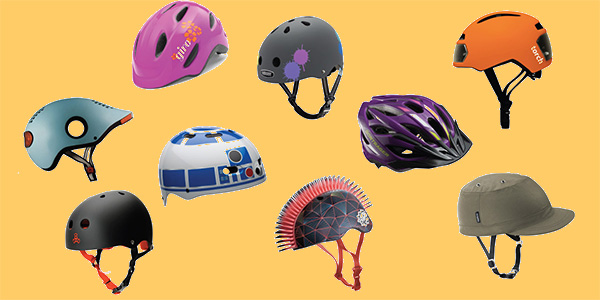
i was a latecomer to the world of the velocipede and that undeniable sense of freedom that came as an added extra. no matter how i tried as a nine year-old, i could not balance for long enough to confidently call myself a cyclist, so i recruited external assistance from the lad who lived but a few doors distant.
he still owned a modestly-sized red bicycle that was now all but too small for his own purposes and his mum and dad had bought him something more appropriate. as i recall, he was a smidgeon taller than yours truly, but happy to lend his little red bicycle that i might fall off with unfailing regularity in the safety of my back garden. acquiring the ability to ride a bicycle in public did occur before my tenth birthday and ready and waiting in the driveway was a most impressive two-tone blue, single-speed cycle presented by my parents as reward for my tenacity in the face of adversity.
that blue bicycle made a huge difference to a ten year-old me. i could now join all of my friends who had learned to ride their own cycles at least two years previously (both of my own kids could ride their bicycles by the age of five) and inspired by the comic strip kids riding raleigh rsw16 bicycles who saved the world on a myriad of occasions, we rode miles and miles and miles, as long as it was within shouting distance of mum and dad.
naturally enough, innocents that we were, those bicycles had to sound akin to motor cars, so we nicked a few clothes-pegs from the laundry basket to clip some playing cards to the forks where the spokes would noisily flick those cards, presumably much to the irritation of the neighbours. but, we were kids and we were enjoying ourselves, wearing just the clothes we put on that morning and the good shoes that mum warned us within an inch of our lives not to scuff on the road while trying to stop without brakes.
yes, we fell off, yes, we grazed one or two knees and yes, there were cuts and bruises on our shins where wayward pedals had been stopped from unfettered spinning. but, to employ an almost unrelated simile, 'you can't make an omelette without breaking eggs.' fun's fun even if it hurts sometimes.
washingmachinepost croft is situated on the edge of what might be described as a pedestrian area; cars are allowed access when necessary, but for the better part of the day, they are gratifyingly persona non grata. this means that kids in the surrounding houses can run about and play on scooters and bicycles relatively free of the need to keep little eyes open for approaching cars.
well, most of the time.
though modern times might be considered the age of the computer game, that's an imposition that appears to arrive at a later age. no doubt as they grow up, there will be an array of small bicycles sitting in garden sheds gathering dust and rust as the playstation and xbox assume their wrongful place in the firmament of the future. meantime, even when the wind blows and the rain falls, the footpaths often resemble the madison at chris hoy's velodrome, a situation for which we must be truly grateful.
of course, even a modest sense of adventure will ultimately take them further afield, away from the relative safety of the housing scheme and the watchful eyes of mum, dad, granny and grandpa, entirely as it should be. that's how evolution works. admittedly, motor traffic is considerably greater than was the case in my own youth, even in the rural idyll, but taking care of yourself in the great outdoors is surely an apprentice adult's right of passage? without interference from the avowedly well-meaning.
in 2007, the tory mp for wellingborough, peter bone, attempted to have parliament bring in a law requiring children under 16 to wear a helmet when riding a bicycle. i have a certain sympathy with his concerns; i too would prefer both kids and adults to wear a helmet. however, i'd stop short of making it a legal necessity. perhaps the under-16s are not the best of individuals to decide whether or not their safety would be enhanced by helmet wearing, but mum and dad ought to be (mrs washingmachinepost and i both insisted our kids wear helmets, though admittedly not always with great success).
the bill failed, as did a similar bill three years earlier and another in 2011 proposed by libdem mp for mid-dorset and north poole, annette brooke (who wanted the law to apply to the under 14s). however, undaunted by initial failure, peter bone is once more attempting to bring a private member's bill requiring the under 16s to wear helmets when riding on the public highway. as far as i know, there are no statistics proving conclusively that helmet wearing reduces injury amongst the more junior members of society. it's more likely, in fact, to simply reduce cycle use amongst those stubborn enough not to wear a helmet.
i'd still prefer kids to wear helmets when riding their bikes, but remembering my own days of freedom before cycle helmets had been even thought of, let's not resort to compulsion. there are plenty of future adult years left in which to suffer the iniquities of the health and safety police. in reality, the intricacies of brexit are likely to prevent peter bone's private bill from making it to the statute books, but...
saturday 23 september 2017
 ..........................................................................................................................................................................................................
..........................................................................................................................................................................................................the red carpet treatment
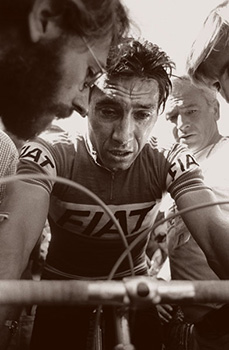
though very much an overused cliché, i'm about to be guilty of continuing its overuse by stating that, if it was 'good enough for eddy, it'll be good enough for us too.' there are several tangible manifestations of this, including the uci's former stance concerning the hour record, where all riders were confined to riding a steel bicycle that had need of matching merckx's in every detail apart from colour.
eddy merckx is renowned as the archetypal winning cyclist; not for nothing was he known as the cannibal, the result of an avowed total of 525 career victories. these were garnered by racing throughout the entire season. though not as long as the current endless loop that commences down under in january, merckx eschewed the targetting of specific events as begun by greg lemond and emulated by many successful individuals since.
the current situation which sees the so-called hardier riders centring their season around the spring classics before resorting to the occasional bout of super-domestique in the grand tours, is matched by the chris froomes of the peloton who give the early season a wide berth, tailoring their own seasonal attack towards at least one, if not two of the grand tours.
the latter approach worked particularly well for froome in 2017, picking up a yellow and a red jersey along with bronze in the world's time-trial championship by way of an end of season bonus. however, quintana lost out big time, featuring poorly in both the giro and le tour and currently showing little likelihood of being able to rescue his season, whatever the effort he might be willing to expend.
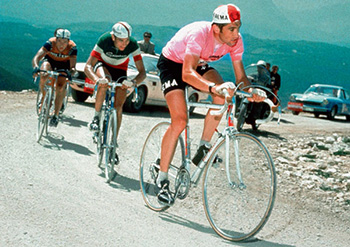
however, that's really nothing new. the term swing and roundabouts is bound to apply to many riders in any given year. consider poor valverde, for instance.
but cycling is somewhat idiosyncratic when it comes to choosing a world champion. unlike formula one motor racing, for instance, allegedly the model on which the uci has based its globalisation of the sport, cycle-racing offers its finest protagonists only one day on which to acquire a nice white jersey with coloured hoops. grand prix racing requires that all its member teams participate in each and every grand prix, but with the same drivers strapped into the cockpits. while the 18 world tour teams are contractually obligated to race each of the world tour events, the team members can change as often as the directeurs sportifs see fit.
this means that no matter how much the teams want it, nor how desirable it would be for fans of the sport, there is little alternative to the one week's activities at the end of september each year, crowning a phalanx of riders in various road disciplines on the basis of how well they prepared or raced a one-day event. to make matters slightly more awkward, when it comes to the road-race events, trade teams are conspicuous by their absence. chris froome, by his own admission, has nabbed two winner's jerseys by dint of the superb, tireless and selfless work done by his fellow members of team sky.
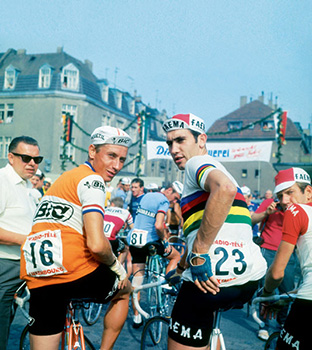
unfortunately, the world championships demand national teams, more often than not, consisting of riders who have only waved to each other over a double-espresso all season. aside from potential divided loyalties, these teams consist of varying numbers depending on the uci's season-long qualification strictures and it's highly unlikely that the subsequent national choice will have had a great deal of time to train in the manner of team sky, movistar or bora hansgrohe. that arguably changes the outlook for the better; no more watching froome sat behind nieve and moscon on the front of the peloton, waiting for the right moment to pounce.
obviously enough, this creates opportunities for riders other than quintana, nibali or dumoulin and from a spectating point of view, creates more of an exciting lottery, than the often crushing predictability of the grand tours. but can we respect whomsoever stands atop the bergen podium this coming sunday as being cycling's true world champion? there's no doubt that whoever crosses the line first will be a worthy victor, but a veritable champion of the world?
just saying.
photos from the velopress book merckx 525
friday 22 september 2017
 ..........................................................................................................................................................................................................
..........................................................................................................................................................................................................is the bubble about to burst?
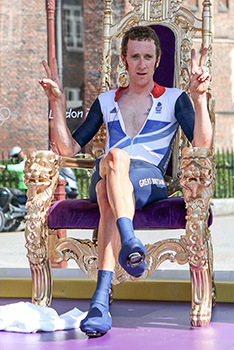
it would be tantamount to naivety to think that prince bradley's 2012 bubble would last for ever and ever. that same naivety could also be applied to thinking that wiggins' influence stretches far and wide, benefitting the world at large, as opposed to britain only. in fact, as the saying goes 'there's nothing so sure as death and taxes.'; no mention made of an endless growth of bums on saddles.
british cycling and cyclinguk both reported an unprecedented growth in membership numbers earlier this year, but assuming at least a few of those new members expected a tad more than just free third-party insurance, they might be less inclined to hang around the bike sheds on discovering that the benefits are more mundane than they were led to believe. such was always going to be the case; every time there's a cycling boom, however you like to quantify such a statement, it's a case of how many continue to hang around when the bubble pops.
i am on record somewhere abouts as having pointed out that, unless the increased cycling numbers arise from 'normal' cycling, as opposed to those of us intent on haring hither and thither aboard skinny wheels and bendy bars, nothing's ever going to change for the better. let's face it; you and i are a bit different. bicycle booms are of no real concern to us. we're going out on our bicycles come rain, hail or snow and who cares how ridiculous we look in lycra (no, your bum doesn't look big in those). but we need also to recognise that screaming along uiskentuie strand into a galeforce headwind is very unlikely to encourage mrs brown to ride her bicycle to the shops.
but aside from all my apparent misgivings, cycling has seen growing favour all across the world; why else would rapha be opening clubhouses in the four corners? but, is everything as rosy as i'd like to believe?
in november of 2016, it was reported that india was in the process of building its first long-distance 'cycle superhighway', the first 207 kilometres featuring their auspicious beginning in uttar pradesh and plans to create another 270 kilometres after completion of the initial foray. but in the last few days, the times of india has reported that stretches of this promised infrastructure is to be removed, due to 'hampering the smooth flow of traffic'. you can bet your last rupee that the last reference means motor traffic.
i'm willing to admit that india, however, might not have figured highly on my cycling radar. unfairly or otherwise, cycling activity in india has never previously featured on thewashingmachinepost. but portland, oregon most certainly has and on far more than a single instance. in fact, i've visited portland on two separate occasions (2009 and 2012), drawn by the friends i've made via the post and to see what was once america's cycling capital at first hand. you can only roll your eyes at the amount of praise that i've heaped upon oregon's fair city, regaling all and sundry of the impressive numbers riding and their seemingly endless enthusiasm for so doing. "if only cities in the uk would follow suit." i may have been heard to say out loud.
but now it appears the red rug may be getting pulled from under my tyres (a thinly veiled reference to the very odd arrangement at this year's itt world championship in bergen). jonathan maus' excellent bikeportland.org website recently reported that the city's commuting growth has not only ended, but quite possibly declined. according to the latest commuting estimates from portland's census bureau, instead of adding a further 12,000 additional annual commutes, as was the case last year, in 2017, car traffic increased its portland commuting power by 11,000.
those same statistics show that cycle commutes in the home of martin luther king boulevard dropped to the level first seen in 2011. couple this with the news that portland's chris king precision components has ended production of its cielo range of handbuilt steel bikes and one begins to wonder if all is well in the state of denmark, as bill shakespeare once queried.
not that i wish to be the harbinger of bad tidings, you understand.
thursday 21 september 2017
 ..........................................................................................................................................................................................................
..........................................................................................................................................................................................................protection racket

modern-day versus old-style bicycle packaging presents something of a conundrum for which i have yet to find a solution. in the far off days when i assembled and sold bicycles as part of the daily travail, the latter arrived in small, easily handled card boxes, printed with high visibility brand logos on the outer sides and printed stamps on each end advising the assembler (that would be me) that the contents had spent more than just a few moments inside a large metal container aboard a sizeable ship all the way from the peoples' republic of china.
levering an array of strong copper staples from the lid revealed a compact and bijou collection of bicycle related parts, encased in kilometres of bubble-wrap, corrugated card or polystyrene sleeves and demandingly sturdy zip-ties, mostly in all the wrong places.

it was (and occasionally still is) often a lengthier process to separate bicycle from packaging than it subsequently was to assemble the bike. and to add insult to injury, pre-delivery assembly was considerably less considerate than soon became the case. in those prehistoric days of yore, it was not only necessary to fit brake and gear levers, but almost always the bar grips and brakes. on occasion, i recall one or two models that featured the rear derailleur inside the box along with q/r levers, pedals and the wholly necessary bell.
it's not too hard to understand why those bicycles had need of such an obsessive level of packaging. who amongst us would have been happy to wait the several weeks demanded by the boat journey from the far east only to discover a series of scrapes and dents engendered by high seas experienced in the south china seas?

however, perhaps in an attempt to standardise final assembly in accordance with ever more complex componentry and a corporate need to fend off any possible litigation due to non-corporate ham-fistedness, many review bicycles now arrive in quite substantially sized boxes. the dimensions of these card behemoths all but invite a council tax demand from argyll and bute council and more often than not, provides me with something of a (albeit temporary) storage problem. rather than retrieving the bicycle via the top of the box, one opens one end to wheel out a cycle that has need solely of having the bars straightened, the seat lowered and pedals attached.
there is not an ounce of packaging to be seen anywhere. how does that work? for in all the years that the latter method has been employed, i have never received a bicycle with any undue marks. and as far as i know, the same has been true when it is returned from whence it came. that calls into question the need for the obsessive level of packaging first mentioned.

having said that, the likelihood of any bicycle that we actually own making it from a to b (no matter the distance covered) in pristine condition, particularly if carried in a mate's van or the back of a rental estate car, is in inverse proportion to its desirability. in other words, it will more than likely have been visited by both partners from scratch and dent inc., if you've taken the propitious step of wrapping your pride and joy in several towels surreptitiously stolen from the airing cupboard, you just know a scratch will invade the unavoidable gap between the pale blue one and the fluffy dark green version.
that, however, is so last year. those of us with froome-based ambitions inflated by a new year resolution to adopt a more professional deportment, have need of something a tad more gestalt in its presentation. a fully resolved bike box would be serious overkill, making us seem needy and undermining that devil-may-care persona we've tried so hard to cultivate. the answer to the conundrum is the recently released fassa defender, double-sided protection for bicycles in transit and storage, featuring inner velcro tabs to secure the shiny protection around its favourite bicycle.
the £100 fassa defender is open at the base, making it simplicity itself to roll the bicycle on its wheels should it have need of being moved while in storage. suddenly laissez-faire professionalism is easily within our collective grasp.
mind you, i doubt it will solve the big box problem that afflicts the intrepid bicycle reviewer.
wednesday 20 september 2017
 ..........................................................................................................................................................................................................
..........................................................................................................................................................................................................there's an app for that

those of us of a certain age can doubtless remember the pre-internet days when televisions were solely in black and white, when we could play outside with impunity and mum almost expected us to come home with skinned knees, scuffed shoes and a dirty jumper. though the winter nights were dark and often chilly and damp, the great outdoors was too much of a draw, even when teenage years beckoned. perish the thought that we'd be home when we were told to be.
long hair and patchwork denims weren't the only sign of teenage rebellion.
the problem, then as now, was the ever-increasing likelihood of getting into some sort of trouble from which we scarcely had the wherewithal to withdraw. bicycles were still ubiquitous amongst the exuberant youth; more energy and bravado, tautologically led to greater distances and the sort of stunts with which we were mostly unprepared to cope. scuffed shoes and grazed knees may have pushed the limits of acceptability when we were small, but they'd not only have been proportionally more painful and embarrassing on grown-up knees and shoes, but likely a tad less socially acceptable into the bargain.
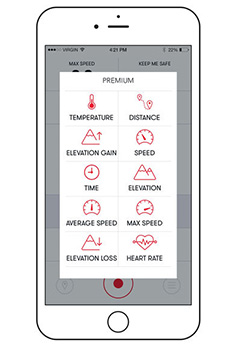
and that's before we even begin to consider our adult years. for some folks simply never grow up. then again, some of us have, but that scarcely excludes us from the stupid mistake or unfortunate happenstance. and though cycling is an activity that often thrives on numerical superiority, it is also happily accepting of the solo rider. sometimes you just have to be alone with your thoughts; thoughts that can often distract from the velocipedinal tasks at hand.
then you're in trouble.
however, the ubiquitous smartphone once more offers a most amenable solution because, as with many of life's little awkward moments, there is an app for that.
i have previously written in favour of the bike computer app, one that can be freely downloaded for both ios and android devices, though preferably those that can be fastened to a bicycle handlebar or, at the very least, secured in a jersey rear pocket. makers of this desirable snippet of software, venikom, have scarcely rested on their laurels since bringing version one to market, for though still free to download, the latest edition offers the in-app opportunity to upgrade to the £39.99 premium version, an upgrade that could just save your life.

apart from now offering the ability to switch the screen to white-on-black when the light dims, keep in touch with the guys or gals you're desperately trying to outrun on strava and analyse ever more closely just how you're doing in the speed and distance stakes, the latest version of bike computer sports a 'keep-me-safe' feature. this allows the entering of emergency contacts who will receive a message and precise gps location should you be involved in an accident. in the highly likely possibility that this might be triggered by having accidentally dropped your phone, there's a 30 second period when the alarm can be switched off, preventing a message from being sent.
the only downside i can see to the latter, is the distinct possibility (on islay at least) that such an accident occurs in a region bereft of a mobile phone signal. however, one step at a time.
if you're in the habit of cyclocrossing or mountain biking in the more remote regions of your back garden, or possibly even sprinting for the tree-line in the back of beyond, upgrading to bike computer's premium service could be one of the more astute decisions you've made recently. additionally, there's 40% off selected cycle clothing brands for premium members. always assuming, of course, that unlike yours truly, you own a smartphone in the first place.
tuesday 19 september 2017
 ..........................................................................................................................................................................................................
..........................................................................................................................................................................................................